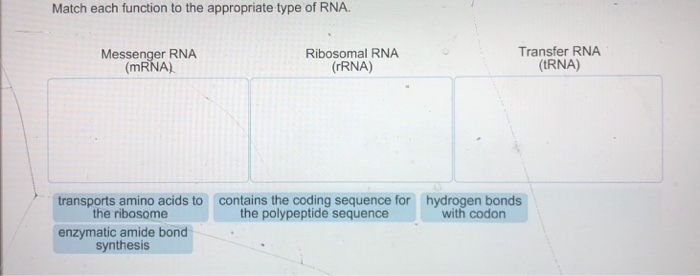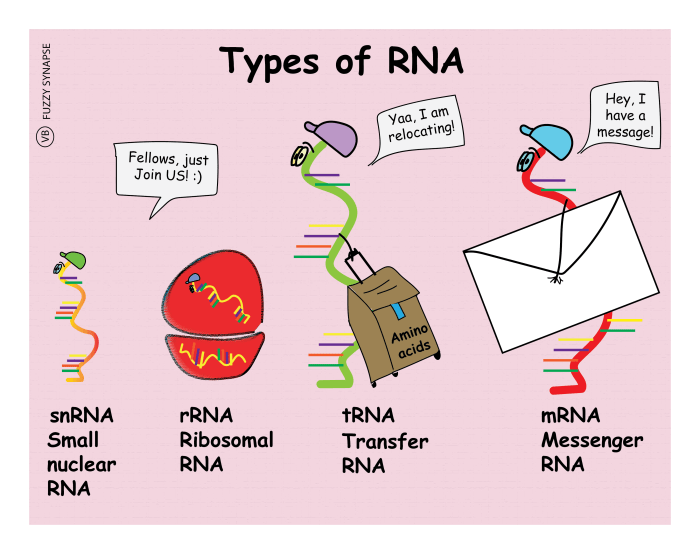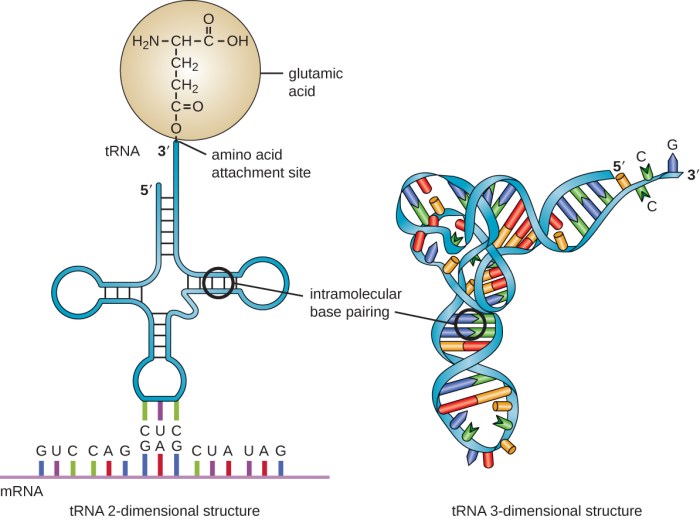Match each function to the appropriate type of rna. – Embarking on a journey into the realm of molecular biology, we delve into the captivating topic of RNA. RNA, a versatile molecule, plays a crucial role in various cellular processes. In this discourse, we will unravel the diverse types of RNA, their intricate structures, and their specific functions within the intricate machinery of the cell.
Our exploration begins with an in-depth examination of the different types of RNA, meticulously dissecting their unique characteristics and cellular roles. Armed with this foundational knowledge, we will embark on a comprehensive analysis, meticulously matching each RNA type to its primary function, unraveling the intricate web of interactions that govern cellular processes.
Types of RNA

RNA (ribonucleic acid) is a type of nucleic acid that plays a crucial role in various cellular processes. Unlike DNA, which is primarily involved in storing genetic information, RNA molecules are involved in a wide range of functions, including gene expression, protein synthesis, and regulation of cellular activities.
There are several types of RNA, each with distinct structures and functions.
Matching Functions to RNA Types: Match Each Function To The Appropriate Type Of Rna.

The different types of RNA can be matched to their primary functions as follows:
| RNA Type | Primary Function |
|---|---|
| Messenger RNA (mRNA) | Carries genetic information from DNA to the ribosome, where it serves as a template for protein synthesis. |
| Transfer RNA (tRNA) | Transfers amino acids to the ribosome during protein synthesis, ensuring the correct sequence of amino acids in the growing polypeptide chain. |
| Ribosomal RNA (rRNA) | Forms the core of the ribosome, the cellular machinery responsible for protein synthesis. |
| Small nuclear RNA (snRNA) | Involved in the processing of mRNA before it can be translated into protein. |
| MicroRNA (miRNA) | Regulates gene expression by binding to mRNA and preventing its translation. |
| Small interfering RNA (siRNA) | Protects the cell from foreign genetic material, such as viruses, by targeting and degrading specific mRNA molecules. |
Top FAQs
What are the different types of RNA?
The three main types of RNA are messenger RNA (mRNA), ribosomal RNA (rRNA), and transfer RNA (tRNA).
What is the function of mRNA?
mRNA carries the genetic code from DNA to the ribosomes, where it is used to direct protein synthesis.
What is the function of rRNA?
rRNA is a component of ribosomes and plays a crucial role in protein synthesis.
What is the function of tRNA?
tRNA brings amino acids to the ribosomes in the correct order, as specified by the mRNA.
